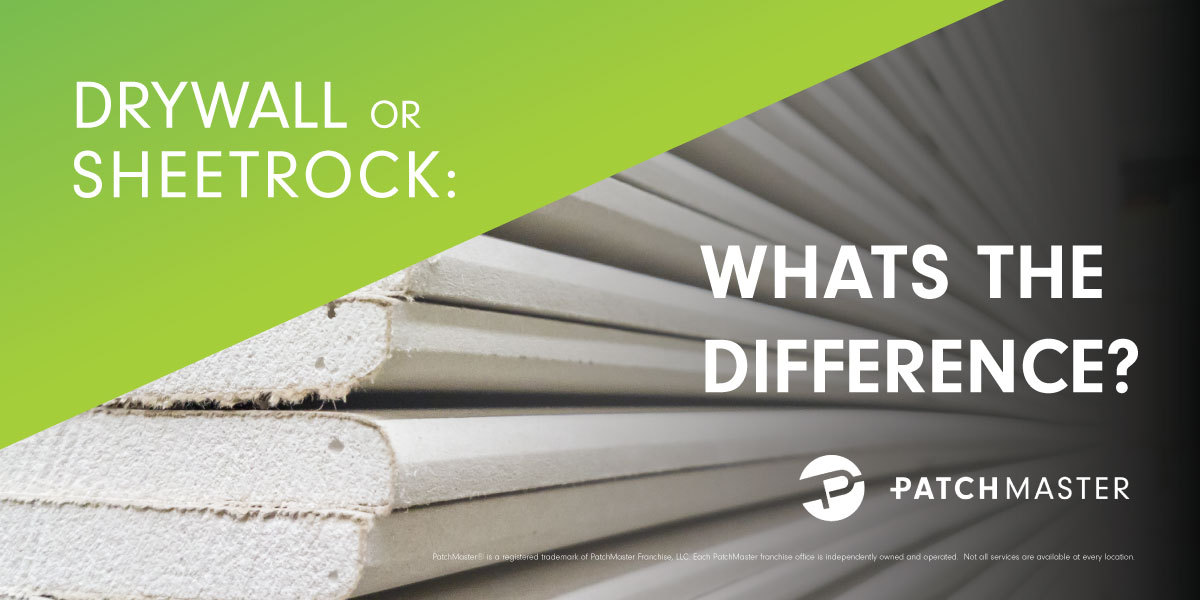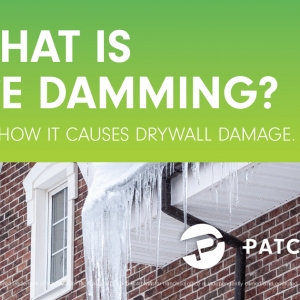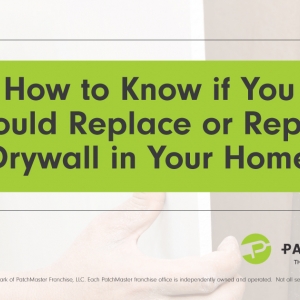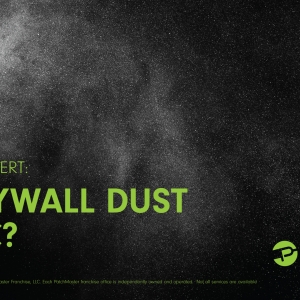Whether you know it as drywall, wallboard, or sheetrock, each of these words describes one of the most common and well-known construction materials: gypsum panels for walls and ceilings. But what difference, if any, is there between drywall and sheetrock? Are they simply different words for the same thing?
Drywall Vs. Sheetrock
The answer requires a bit of a history lesson: “sheetrock” is a brand name invented by USG. US Gypsum (now USG Corporation, or USG). All Sheetrock® brand gypsum panels are drywall, but not all drywall is Sheetrock® Brand. This is similar to other brands that have become synonymous with their iconic products, such as ChapStick, Xerox, or Kleenex.
What is Drywall?
Before the creation of drywall, plaster (produced from the mineral gypsum) was the only material used to create walls in most buildings. Plaster, unlike drywall, is applied wet to wood lath that has to dry completely before additional layers can be added.
Augustine Sackett’s invention of a laminated sheet of straw paper and tar suddenly gave the home construction industry more options to work with, allowing for this type of panel to be used in additional areas of a home or building - such as a ceiling. To combat the previous issue of extremely flammable straw and tar, Sackett replaced the hot tar with plaster of Paris, and in 1894, he patented it, resulting in Sackett Board.
Armed with his breakthrough plasterboard product, Sackett partnered with USG to help bring his product to market. From there, Sackett Board kept improving; in 1910, a "folded edge" was introduced to keep it from crumbling, and in 1913, the two interior layers of paper were removed, leaving a solid gypsum core between the top and bottom sheets. It was then rebranded as "Adamant Board." In 1916 another landmark update was made with the creation of square edges, allowing two gypsum panels could be joined flush along a wall for a (relatively) smooth surface. This surface could then be decorated without the application of plaster - thus giving birth to the term “wallboard.”
What is Sheetrock?
In 1917, USG marketed the first iteration of the modern wallboard as the "Adamant Panel Board.” At the time, a sales representative named D.L. Hunter, suggested calling the product Sheetrock to more accurately reflect its quality and performance; and the rest is history.
USG's Sackett Board created the drywall industry. In the wake of World War I, Sheetrock® became the specified choice for all government buildings due to its fireproof qualities and quick application.
During the Great Depression, the largest construction project in the United States was the Chicago World’s Fair, for which USG was chosen to supply Sheetrock® Panels. They were chosen for the panel's durability - they could withstand two years of exposure outside the semi-permanent structures built for the fair. Fun fact: Sheetrock® Brand accounted for 65% of the wallboard used at the fair.
This project gave USG a lot of exposure, as Sheetrock® Brand ran ads in top magazines. In fact, during World War II, Sheetrock® Brand supplied tons of building materials to the War Department- lining the walls of military base buildings and plants built that aided in the war effort, thus providing further brand recognition for the product and company.
Sheetrock® Becomes a Brand
Following WWII, gypsum wallboard gained wide acceptance in commercial construction, and Sheetrock® Brand gained public attention. High-rise construction was revolutionized by USG's fire-resistant metal C-studs and drywall screws. They were introduced at the height of the most significant building boom in history.
The mid-1960s saw the rise of large chain hardware supply outlets, which changed the market. With no time to waste, USG created a national accounts department to cater to these large national and regional retailers, making Sheetrock® Brand the leading brand in the industry.
In 1966, USG renovated apartment buildings across major cities in the U.S. to establish the Sheetrock® Brand, in a massive branding exercise. The strategy: Instead of tearing down buildings and starting over from scratch, USG materials, including Sheetrock® Brand gypsum wallboard, were used in the interiors to update the facades.
Sheetrock's Tradition Lives On
In 1992, the Sheetrock® Brand celebrated its 75th anniversary. At that time, USG was the largest distributor and producer of gypsum board in the United States. You can learn more about USG's company history here.
No matter the size, shape, or location, PatchMaster's skilled technicians can make your home whole again. We focus on repair, so our technicians can specialize in matching existing textures and making holes disappear.
Get a free repair quote for drywall and sheetrock repair, painting services, popcorn ceiling removal, texture matching services, or small ding and dent repair today. Or call PatchMaster at 1-844-PATCH-MAN (US) or 1-833-WE-PATCH (Canada)






